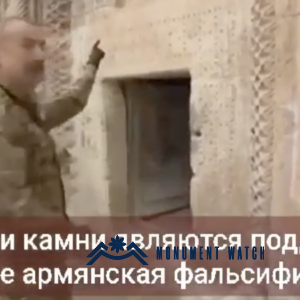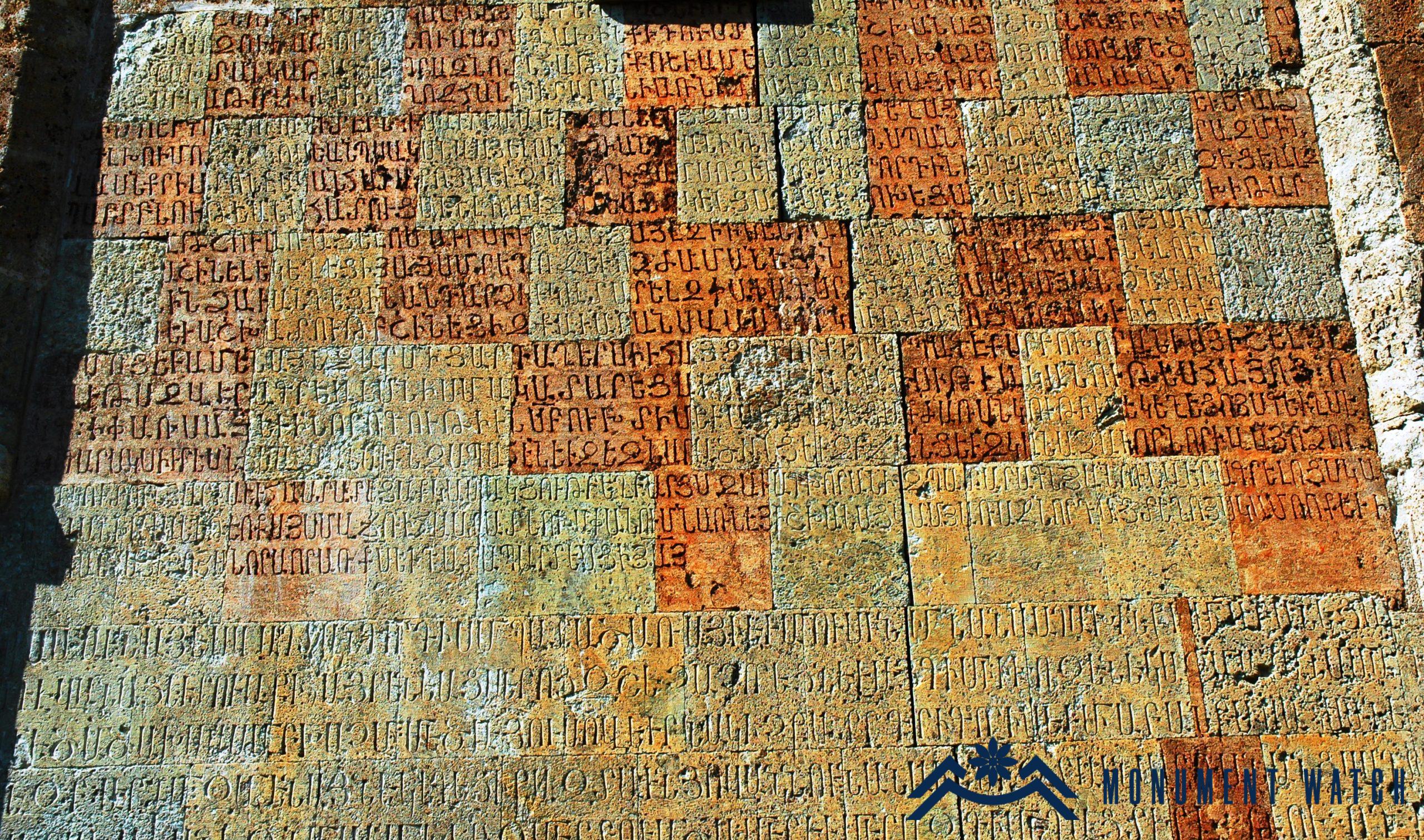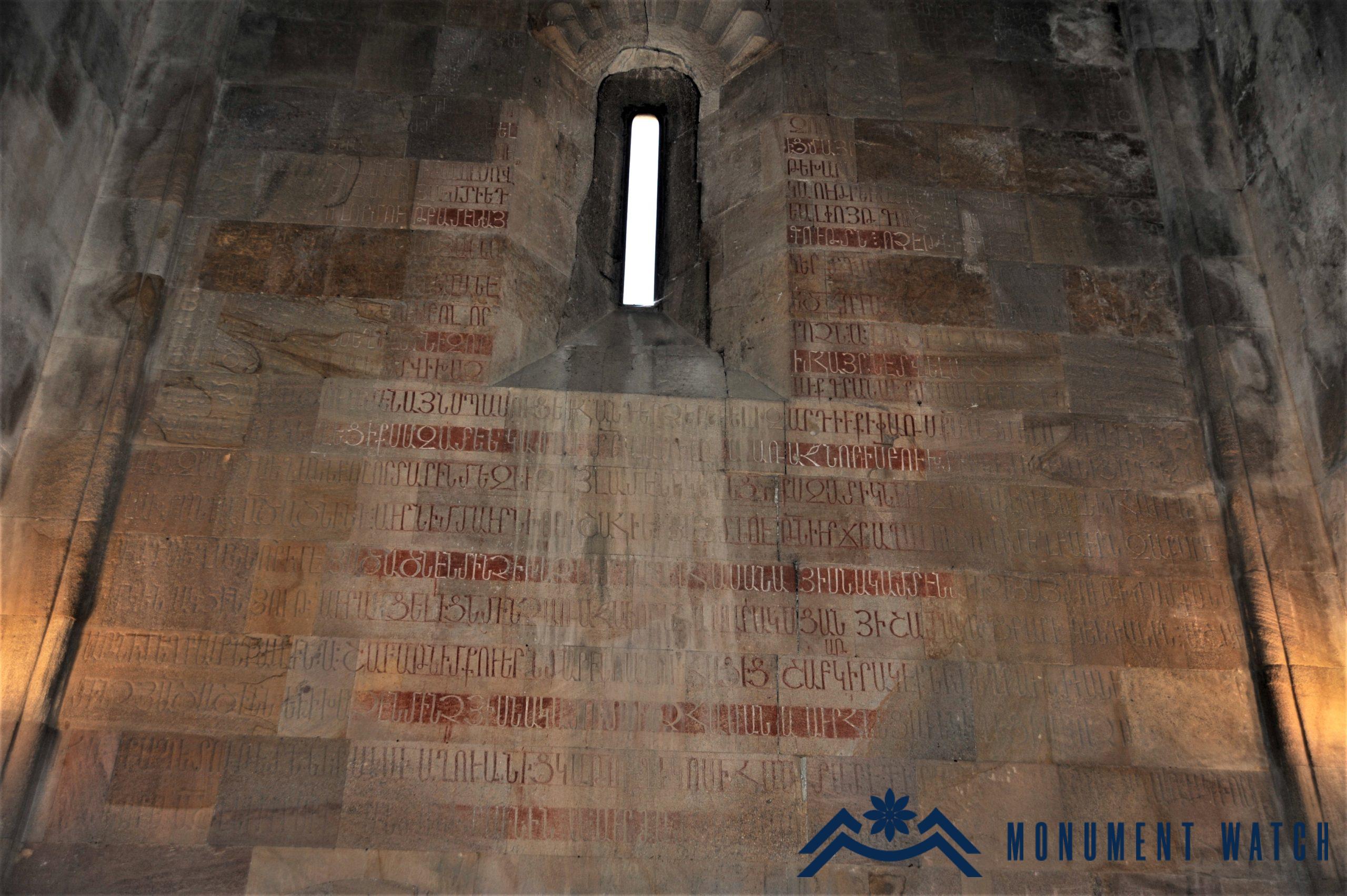Azerbaijan intends to completely destroy the Armenian cultural heritage in the occupied territories
On February 3, 2022, the Azerbaijani Report news agency published an article, which presented a statement made by the Minister of Culture of Azerbaijan Anar Karimov. Quoting the words of the minister, the portal notes that Azerbaijan is going to create a special working group consisting of experts on history, culture, and architecture of Caucasian Albania, as well as representatives of state structures, who, after studying the matter will have to "remove the fictitious traces, letters, and inscriptions written by Armenians” from the walls of the “Albanian religious/Christian” buildings in Artsakh.
Anar Kerimov added that the special working group has “already inspected those places”, and after clearing the areas of mines, already in a safe environment, with the help of the involved international experts they will discover “the Armenian forgery and changes and present them to the international community”.
Does this mean that thousands of Armenian inscriptions on the monuments of Artsakh should be erased, as Aliyev already showed in Tsakuri? Inscriptions are the most important and primary evidence of belonging to this heritage.
Later, on February 7, the Ministry of Culture of Azerbaijan stated that “unlike Armenia, Azerbaijan does not allow discrimination on the grounds of religion or ethnicity in case with its historical and cultural heritage in its state and remains faithful to the obligations of the 1954 Hague Convention for the protection of Cultural Property in the Event of Armed Conflict”. The statement also includes affirmation that the falsification and change of ownership of cultural and historical heritage are contrary to the provisions of the above-mentioned convention.
In its statement to international media denying the alleged religious discrimination against “Albanian culture” in Artsakh, the Azerbaijani Ministry of Culture told that “Azerbaijani officials have repeatedly claimed that historical and religious monuments in our liberated territories present Azerbaijani heritage, the protection of which is the responsibility of Azerbaijan”, the text says.
Our response
It is clear from the Azerbaijani minister's statement that Azerbaijan is planning to destroy traces of the Armenian heritage in Artsakh under the guise of “so-called” restoration of the "Albanian" culture. You can read about this matter in another article on our portal "Udi propaganda as an expression of Azerbaijani politics".
Such a statement made by a high-ranking official representative of Azerbaijan proves that Azerbaijan is pursuing a clear programmatic policy aimed at eradicating the Armenian cultural and historical traces on the territory of Artsakh, this time openly threatening to erase and destroy the inscriptions from the Armenian churches in Artsakh.
Azerbaijan, seeing that the world community does not adequately respond to its obvious vandalism of Armenian historical churches after the 44-day war, has chosen a different path - to preserve the Armenian churches, eliminating the Armenian trace, illegally appropriating the entire heritage of the Christian community.
In this regard, it should be noted that there are no Albanian churches on the territory of Artsakh, with “inserted” Armenian inscriptions. The "scientific community" of Azerbaijan does not have sufficient professional knowledge of understanding the Armenian Christian culture and monuments, as evidenced by their own publications, which were limited to the presentation of Muslim architecture. The only thing that Azerbaijanis can do "fine" is to distort, destroy and falsify.
Moreover, if this alleged commission tries to implement its program of the cultural genocide of Armenians, it will deprive the cultural heritage of Artsakh Armenians of its phenomenon of authenticity, distort the historical truth, deprive generations of the opportunity to enjoy and live by the culture created by their community. Such a policy expresses discrimination and violates the freedom of thought, conscience and religion contained in the Universal Declaration of Human Rights, and the right created by this freedom to determine the significance of cultural heritage by the community itself.
This is also a gross violation of cultural law. The Nara Document on the Protection of the Principles of Authenticity states that in cases where cultural values appear to be in conflict, respect for cultural diversity demands acknowledgment of the legitimacy of the cultural values of all parties.
It is important to emphasize the basic principles of UNESCO's activities, according to which the responsibility for the preservation and management of cultural heritage lies on the community that created this cultural heritage. And the importance of the fact of the authenticity of cultural heritage should in no case be underestimated (Nara Document on Authenticity, paragraph 8).
It is worth pointing out that, as stated in the introduction to the 1954 Hague Convention “for the Protection of Cultural Property in the Event of Armed Conflict” and the Military Manual to the Protection of Cultural Property drafted by the UNESCO in 2016, the destruction of heritage which is a vital part of the identity of all humanity leads to the deprivation of its irreplaceable values. In this case, the protection of the cultural heritage of the Armenians of Artsakh becomes mandatory, because the loss of heritage can lead to the irreversible loss of the world's cultural communities.
The heritage of Artsakh was created by the Armenians of Artsakh in accordance with their ideas and skills, and the policy of Azerbaijan, obviously, is aimed at falsifying or distorting this very heritage.
In accordance with international declarations, Azerbaijan made commitments to preserve the heritage of Artsakh Armenians, to preserve its authenticity and integrity. And the same convention, the Ministry of Culture of Azerbaijan referred to, by its 4th article forbids committing any acts of hostility, vandalism, robbery, harm and destruction towards these values.


